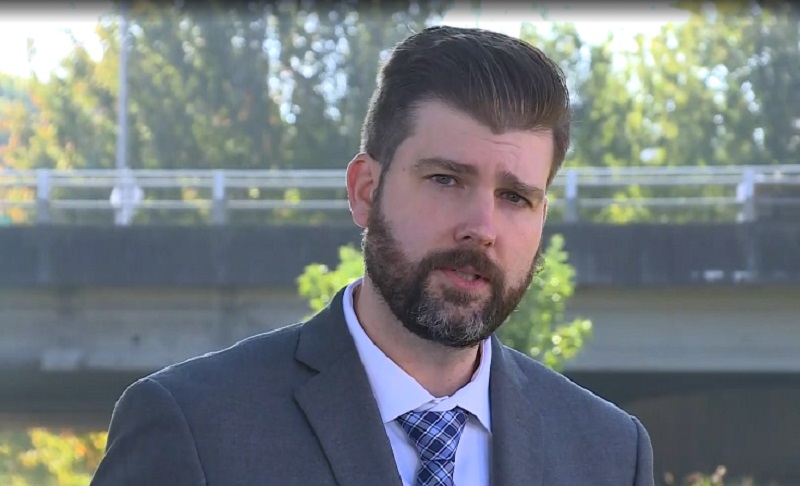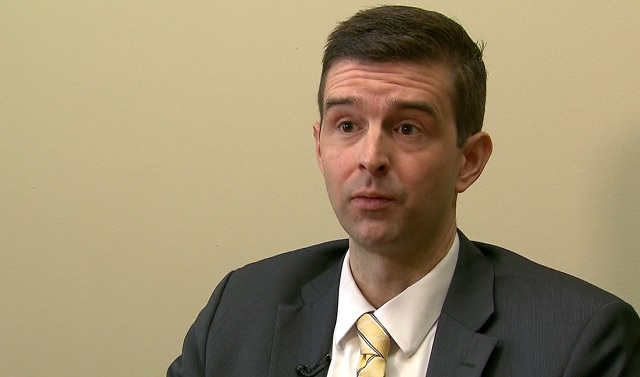CLACKAMAS COUNTY, Ore. (KOIN) — A bill that would dismantle Oregon’s voter-approved law requiring mandatory minimum sentences and no early release for a number of serious offenses, as well as enact a number of other criminal justice reforms and regulations, gets its first public hearing Thursday.
People convicted for a sexual, violent or deadly crime — such as manslaughter — under Measure 11 can spend anywhere from five to 25 years in prison, but House Bill 2002 would convert mandatory sentences for felonies other than murder to presumptive sentences. It would also give greater leeway to judges to impose harsher or more lenient sentences (or even just probation), and make perpetrators eligible for additional sentence reductions for good behavior or alternative incarceration programs.
Voters passed Measure 11 in 1994, with 65.6% of the vote. In 2000, citizens rejected an effort to repeal the law by 73.5% of the vote.
Oregon violent crime levels dropped by half since then, according to FBI data cited in an Oregon District Attorneys Association (ODAA) report. While non-whites remain over-represented in Oregon’s prison population, that disparity has decreased since Measure 11 passed, according to the report.
“Measure 11 has proven some positive results for increasing public safety in Oregon and I would hate that increased public safety diminished, which I think will happen if Measure 11 is repealed,” Washington County District attorney Kevin Barton said earlier this year.
The Portland area’s three district attorneys are split on Measure 11: Barton and Clackamas County DA John Wentworth believe it is working as intended; Multnomah County DA Mike Schmidt opposes mandatory minimums.

Multnomah County District Attorney Mike Schmidt in Portland, October 29, 2020 (KOIN) 
Washington County District Attorney Kevin Barton (KOIN) 
Clackamas County District Attorney John Wentworth (courtesy Clackamas County)
“It took the power away from judges to decide what the sentence should be,” Schmidt told KOIN 6 News in a May 2020 interview.
HB 2002’s chief sponsors include Reps. Janelle Bynum, Wlnsvey Campos, Kayse Jama, and Khanh Pham, acting on behalf of a number of local nonprofits including the Coalition of Communities of Color, Latino Network and Central City Concern. Since Measure 11 was a voter-approved law, it will require a two-thirds majority in both legislative chambers to change.
The omnibus bill includes a slew of additional changes: It appropriates $2.5 million in general fund money to a “Reimagine Safety Fund;” prohibits traffic stops for certain violations, like having a headlight or taillight out; restricts where parole and probation officers can carry guns; and prohibits police from taking a suspect in need of medical attention or who is showing symptoms of a contagious virus to jail.
Additionally, HB 2002 would limit police to just issuing citations for numerous misdemeanors including low-level theft, trespass, forgery, and interfering with an officer. Furthermore, officers could only arrest someone without a warrant for a felony, a person Class A misdemeanor, or a crime that was committed in the officer’s presence if the bill passes.
“We think that has serious impacts,” ODAA Executive Director Michael Wu said, offering a hypothetical domestic violence scenario.
If someone’s partner hit them but it didn’t result in physical injury as defined by the law, that would be harassment, a B misdemeanor, Wu said.
“Let’s say somebody videotaped what happened, they could show that on their phone to the police officer and the police officer wouldn’t have any option under House Bill 2002 but to either write them a ticket to come to court, or they could go through the process of trying to get an arrest warrant from a judge,” Wu said.
HB 2002 is one of several bills lawmakers are considering that would change Measure 11. Here are some examples of how punishments could change if Measure 11 reform passes in Salem, and all sentence reductions were applied, according to the ODAA:
| Crime | Measure 11 sentence | Proposed legislation sentence |
| Attempted murder | 7.5 years | 2.8 years or probation |
| Manslaughter 1 | 10 years | 3.9 years or probation |
| Rape 1 (of a child under 12) | 25 years | 3.9 years or probation |
| Robbery 1 | 7.5 years | 2.3 years or probation |
The ODAA plans to testify against HB 2002 Thursday afternoon in front of a house committee. Anyone wishing to submit testimony in favor of, or opposition to the bill can do so on the Legislature’s website.